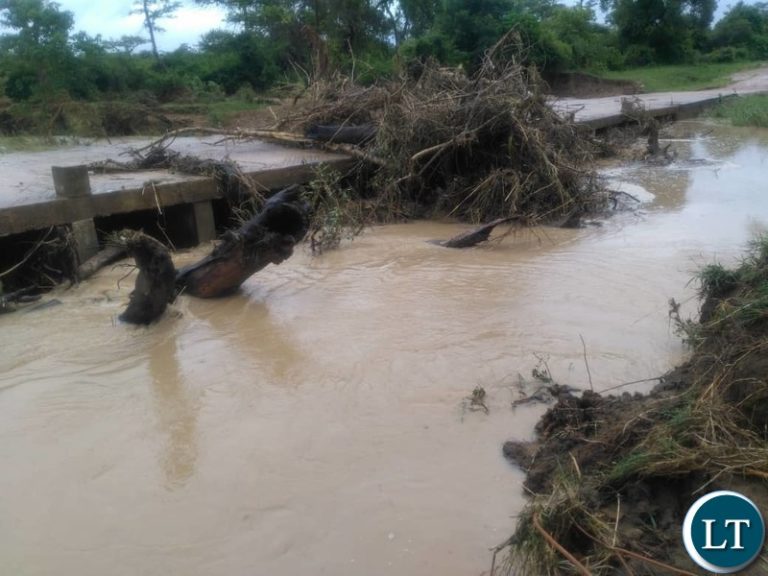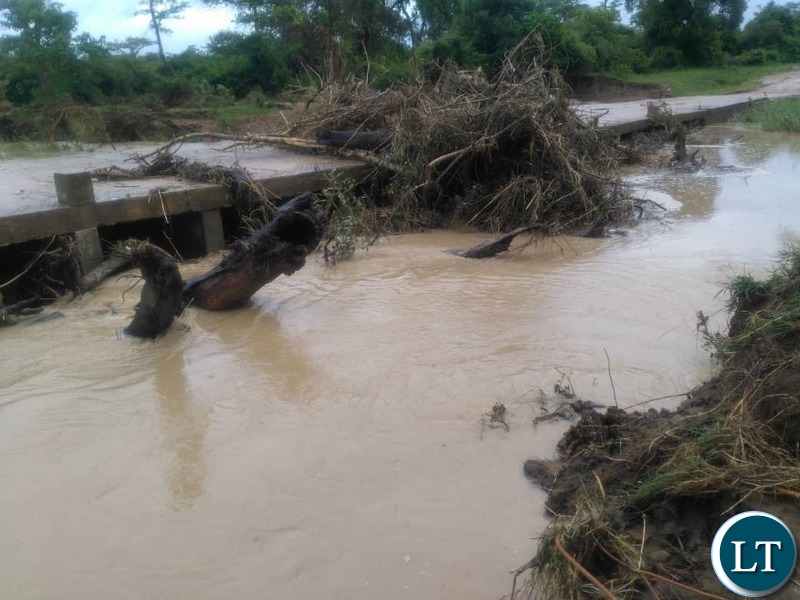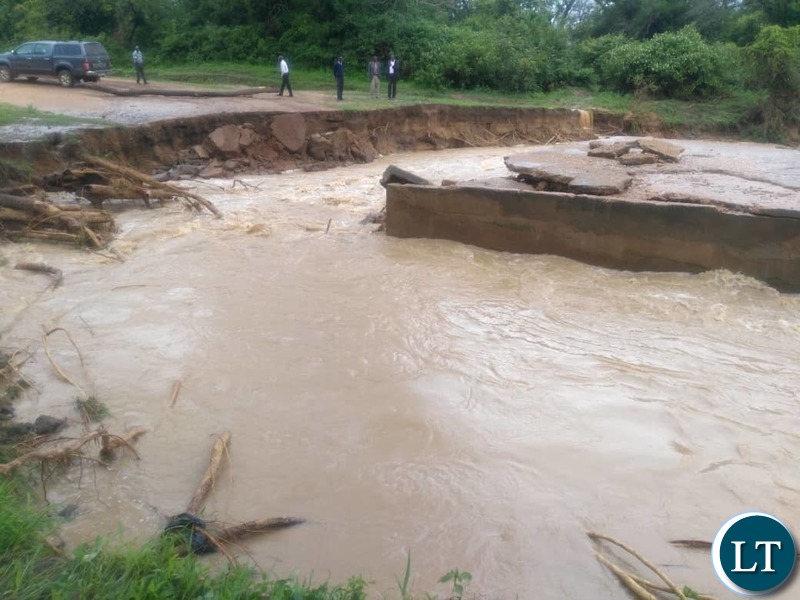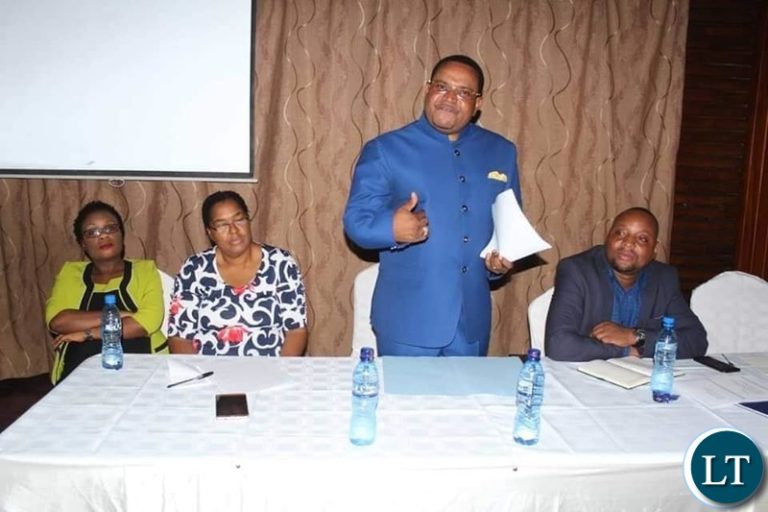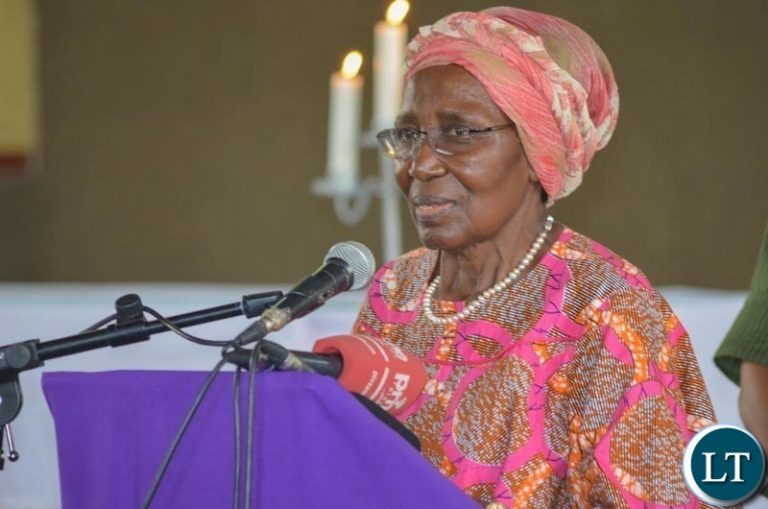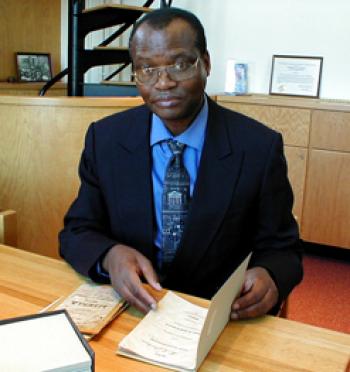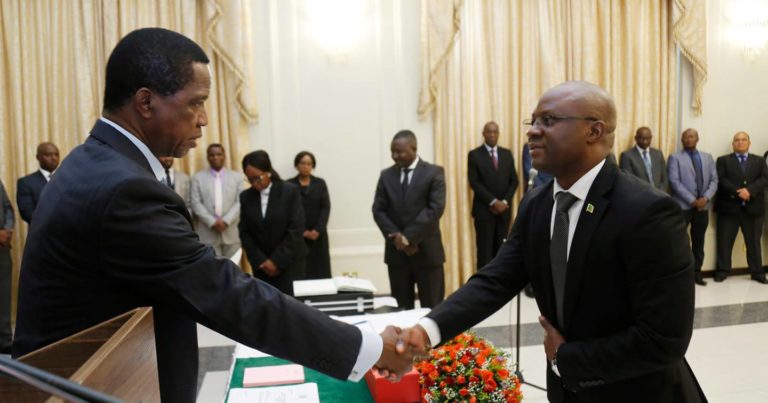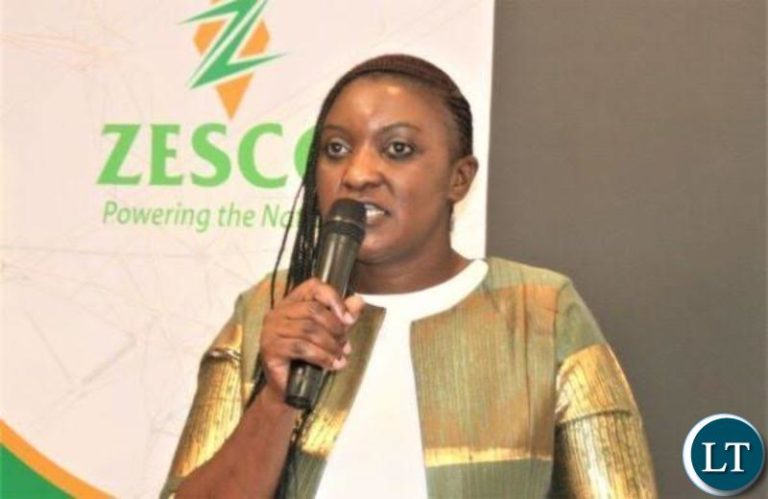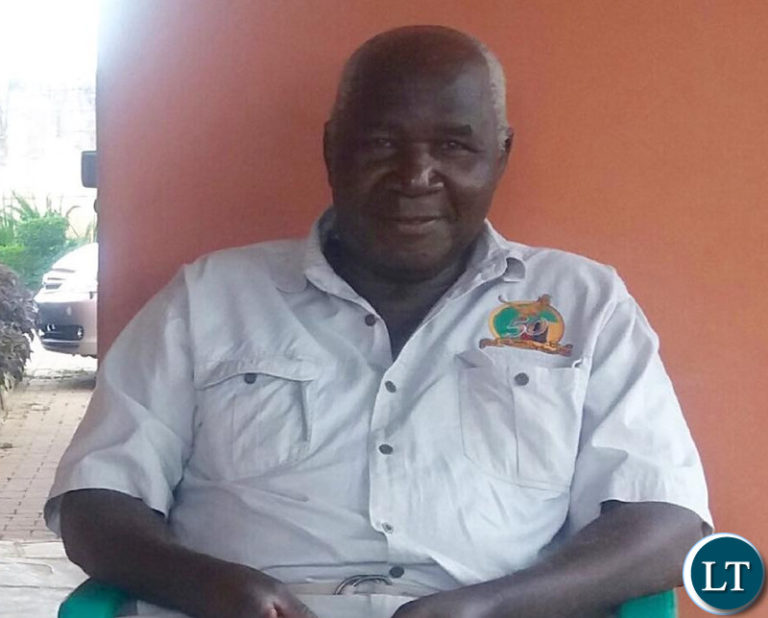By Prof Muna Ndulo
As part of the infamous Bill 10 package the Government proposes to pass the Public Order Bill of 2019. A coalition of inept lawyers and Government sponsored NGOs have hailed the proposed Bill as an improvement on the existing Public Order Act. Indeed some of those attacking UPND and the independents that walked out of Parliament on the presentation of Bill 10 in parliament claim that rejecting the Public Order Bill is throwing the baby with bath water.
I have nothing but admiration for the UPND MPs and the Independents for being steadfast in saving the country from the shameless effort to constitutionalize dictatorship. They are living up to Mark Twain’s injunction: “My country always and my Government when it is right” I have looked at the proposed Bill and found a number of its contents in particular article 3 (1) which provides that “a person shall not hold a public gathering (a) if that person does not give the notice required to be given under section 5 and a person who does not give notice or contravenes directives issued by the authorized officer is guilty of a crime and on conviction is liable to a fine or imprisonment,” I find this and other provisions to be unconstitutional and a violation of the freedom of assembly as enshrined in our constitution.
The Public Order Bill, 2019 has the additional problem that it in section 18 regulates the content of speech and violates freedom of speech. Section 18 states that “Any person shall not speak any words or do an act at a public gathering intended to incite enmity between a person and another or between a section of the community and another who contravenes subsection (1) commits an offence and is liable, on conviction, to a fine not exceeding fifty thousand penalty units or to imprisonment for a term not exceeding six months or both. In addition, the Public Order Bill gives the police wide discretion to refuse to hold meetings on the ground that they do not have sufficient manpower to police the meeting and impose numerous conditions on the gathering.
In addition a completely new concept is introduced which is not only unconstitutional but completely undermines accountability on the part of the police. Section 21 states that: “an action or other proceedings shall not lie or be instituted again a police officer or authorized officer in respect of an act or thing done, or omitted to be done in good faith in the exercise or performance of any of the functions or duties conferred under this act.” This provision violates the right of an individual to seek redress when he or her right are violated. It promotes impunity with regard to police conduct. I will later in the paper show how these provisions violate the right to freedom of assembly.
Although, I am conscious that as far as the PF Government is concerned, I am speaking to the deaf as their sole and only purpose in this exercise is to establish a system that entrenches their hold on power, it is helpful to comment on the Public Order Bill 2019 for the sake of posterity and those who are genuinely interested in learning about this hideous Bill. It is important that the collective consciousness of the Zambian society is awakened to the inherent perilousness of allowing the shrinking of the common public space under any guise including that of constitutional reform and getting rid of a colonial relic – the Public Order Act of 1955.
We find ourselves in a mess we are in with regard to freedom of assembly because of the deference to the executive by the Zambian Judiciary and its failure to resolutely defend the freedom of assembly in the cases that have come before the courts. In the cases of the Law Association of Zambia v. The Attorney General (2016), and the Resident Doctors Association of Zambia v. Attorney General the constitutionality of sections 5 and 6 of the Present Public Order Act were challenged, the Supreme Court in judgments that were devoid of rigorous legal analysis and which ignored the wealth of jurisprudence on the matter from African and European courts and international tribunals held that the sections were constitutional.
The Public Order Act restriction of the right to Assembly is in direct conflict with the fundamental rights of citizens which are entrenched and guaranteed by the Constitution. It offends the conception of a constitution in a democracy. The Zambia Police clearly abuse the Act and use it to harass and prevent the opposition parties from holding meetings to explain their platforms to the Zambian public.
Constitutionalism and human rights depend on how the limitations imposed on the government by the constitution are interpreted and enforced. As a leading constitutional lawyer, Professor Nwabueze aptly observed: “liberty implies the limitation of power by law and the one institution above all others essential to the preservation of the rule of law has always been and still is an honest, able, learned and independent judiciary.” The maintenance of an independent and accountable judiciary is fundamental to constitutionalism and the protection of human rights.
In the following paragraphs, I would like to show that the Public Order Bill is unconstitutional. In my view its contents are worse than the existing Public Order Act. Its proper name should be Public Order Plus Act. For the avoidance of any doubt, the right to assemble is a constitutional right, provided for and guaranteed by Article 21 of the Zambia Constitution. Article 21 provides that “except with his own consent, no person shall be hindered in the enjoyment of his freedom of Assembly and Association, that is to say, his right to assemble freely and associate with other persons and in particular to form or belong to any political party, trade union or other association for the protection of his or her interest.
Yes, the right is not absolute, article 21 (2) provides that nothing contained in or done under the authority of any law shall be held to be inconsistent with or in contravention of this article to the extent that it is shown that the law in question makes provision (a) that is reasonably required in the interest of defense, public safety, public order, or public moralities (b) that is reasonably required for the purpose of protecting the rights or freedoms of other persons. These limitations as we will show have been interpreted. The severity of a limitation is established by considering the impact of the limitation on the right in question. The South African Constitutional Court observed in S v. Manamela (2000) that “it is well settled that the more severe the limitation is, the more powerful the justification for that limitation needs to be.” The bottom line is that a limitation cannot be used to deny the right.
The Public Order Bill is ordinary legislation and is and cannot be above the constitution and must conform to article 21 of the constitution. The Constitution is the Supreme Law of the land. It gives life and meaning to any other piece of legislation. As the Chief Justice of South Africa, Mogoeng Mogoeng observed in the Economic Freedom Fighters Case: “just as roots do not owe their life to branches, so are the powers provided by national legislation incapable of eviscerating their constitutional forbearers into operational obscurity.” The supremacy of the Constitution is an elementary principle of constitutional democracy. As the former Chief Justice of South Africa, Justice Chakalson observed in; S v. Makwanyane, “All constitutions seek to articulate, with differing degrees of intensity and detail, the shared aspirations of a nation; the values which bind its people, and which discipline its government, and national institutions; the basic premises upon which judicial, legislative and executive power is to be wielded; the constitution limits and sets the conditions upon which that power is to be wielded.” Thus, Parliament and indeed any other branch of government cannot have more power than that granted to it by the Constitution. Parliament cannot make legislation which violates constitutional provisions. Such legislation would be unconstitutional and invalid.
Hence, the Constitutional Court of South Africa in, South African Prosecution Authority, Democratic Alliance v. The President of South Africa and Others, quoting Justice Mahomed’s words to the International Commission of Jurists, had this to say: “…. The legislature has no mandate to make a law which transgresses the powers vesting in it in terms of the Constitution. Its mandate is to make only those laws permitted by the Constitution and to defer to the judgment of the Court, any conflict generated by an enactment challenged on constitutional grounds. If it does make laws which transgress its constitutional mandate, or if it refuses to defer to the judgment of the Court on any challenge to such laws, it is in breach of its mandate. The Court has a constitutional right and duty to say so, and it protects the very essence of a constitutional democracy when it does. A democratic legislature does not have the option to ignore, defy or subvert the Court.”
According to the Zambian Constitution, the power to interpret legislation and the Constitution is vested in the courts. No organ of state, not the Minister of Home Affairs, not the Minister of Justice, not any piece of legislation, and certainly not the Police can give a binding interpretation of the constitutional right of Assembly. It is for the Courts to do so. This aligns with the fundamental nature and purpose of the rule of law, separation of powers and constitutionalism. No meaningful constitutional democracy can encourage the disappearance of the right of Assembly of the citizens. It is even worse to imagine that the right is dependent on the good pleasure of the Police, the Parliament or any other organ of government. It is the Assembly of the people/citizens that forms a nation. Even the smallest spheres of community assemblage is a necessary corollary of the right of citizens to assemble, associate and form relationships in order to pursue common aspirations which includes the idea of nationhood.
To further develop my argument relating to the unconstitutionality of the Public Order Bill, I would like to once again highlight the importance of the Freedom of Assembly in a democratic society. After that, I shall show the universal support for my position by referring to progressive judicial interventions elsewhere around the world. As already mentioned Freedom of Assembly is fundamental to a healthy democracy. It enables us as social beings to form organizations with others, to express our political and other views, and to collaborate with like-minded people. It enriches political dialogue. The right to freedom of Assembly serves as a vehicle for the exercise of many other civil, cultural, economic, political and social rights. The rights are essential components of democracy as they empower men and women to express their political opinions, engage in literary and artistic pursuits, and other cultural, economic and social activities, engage in religious observances and other beliefs, form and join trade unions and cooperatives, and elect leaders to represent their interests and hold them accountable. Democracy is both deliberative and participatory. Its meaning and development are inexorably tied to the deliberative and participatory limbs.
To remove the deliberative and participatory content of democracy under the guise of public order is simply a rough amputation. The pains are deep, and the challenges are inherently tricky. No healthy democracy, therefore, can afford the luxury of citizens who are quarantined in their homes —with no meaningful capacity to engage the state through free assembly and other forms of citizens’ participation.
It is the fundamental nature of democracy that the public space belongs to the public – hence the idea of a republic (res publica). By the citizens’ collective ownership of the public, they pay taxes to maintain it and indeed pay those who are given limited functions within that space. In so doing, the citizens do not divest themselves of that inalienable right to assemble. They do not give powers to public office holders to put them in enclosures from wherein they as citizens will timorously be peeping out through crevices to imagine what their functionaries are doing. Thus, no state functionary can in a democratic society validly appropriate that public sphere let alone expropriate it from the citizens through the purported implementation of any public order act.
Furthermore, the right to Freedom of Assembly is guaranteed in all the major international and regional human rights conventions.
It is guaranteed in article 21 of the International Covenant on Civil and Political Rights. It is also reflected in article 8 of the International Covenant on Economic, Social and Cultural Rights; article 11 of the African Charter of Human and Peoples Rights to name a few. Zambia subscribes to these international covenants and treaties. Granted this right can be subject to specific limited derogations which are prescribed by law and for purposes reasonably foreseeable and necessary in a democratic society—article 21 (2) of the Zambian Constitution – in the interests of national security or public safety, public order, the protection of public health or morals or the protection of the rights and freedoms of the others. These derogations are to be narrowly interpreted. The UN special rapporteur on freedom of Assembly and Association emphasizes the point that only “certain restrictions may be applied, which means that freedom [freedom of Assembly] is to be considered the rule, and its restriction the exception. States cannot undermine the very existence of the attributes of these rights when restricting them.” Also, General Comment No 27 (1999) of the Human Rights Committee stated that “in adopting laws providing for restrictions, states should always be guided by the principle that the restrictions must not impair the essence of the right… the relation between right and restriction, between norm and exception, must not be reversed.” In simple language, the ultimate value and norm is the freedom to assemble, and the limited derogation is only an exceptional – and at best interim – measure to preserve such things as public health in times of public health emergencies.
I would now like to show that that Sections 3(1) 3 (2) of the Public Order Bill, 2019 requiring notice on the pain of criminal punishment are unconstitutional. The draconian and undemocratic nature of this provision is self-evident in many respects, but I shall draw attention to a few here. For instance, section 5 (4) provides that any person intending to assemble or convene a public meeting, procession or demonstration shall notify the Police in writing of such intent five days before the meeting. Section 6(2) states that the notice required under subsection (4) shall contain an undertaking by the persons intending to assemble or convene a public meeting, procession or demonstration that order and peace shall be maintained through the observance of the following conditions: (a) that they have been informed by the Police that the site for the meeting has not already been granted to another convener for the holding of a public meeting, procession or demonstration; (b) that the route and the width of the route is suitable for the holding of processions in accordance with the width and route specifications for such purposes as specified by the Minister by statutory order;(c) that marshals of a number sufficient to monitor the public meeting, procession or demonstration are available and shall co-operate with the Police to ensure peace and stability; (d) that the commencement, duration and destination of the public meeting, procession or demonstration shall be notified to the Police; (e ) that the public meeting, procession or demonstration shall not create a risk to security or public safety, a breach of the peace or disaffection amongst inhabitants of that neighborhood; and (f) that the conveners of the meeting, procession or demonstration have been assured by the Police that at the time of the proposed activity shall be held, it will be possible for it to be adequately policed.
Section (7) provides that where it is not possible for the Police to adequately Police any particular public meeting, procession or demonstration, the regulating office of the area shall, at least five days before the date of the public meeting, procession or demonstration, inform the conveners of the public meeting, procession or demonstration in writing the reasons for inability of the Police to Police the public meeting procession or demonstration and shall propose an alternative date and time for the holding of such public meeting, procession or demonstration and (7) provides that whenever the Police notify the conveners of a public meeting, procession or demonstration that it is not possible for the Police to adequately Police any proposed public meeting, procession or demonstration, such public meeting procession or demonstration shall not be held.
On the face of it, it is clear that the state has wholly expropriated the people’s public sphere through the Police. The full amplitude of powers and arbitrariness granted to the Police is horrifying when looked at in the light of the potential abuse it can be used to met out to citizens. The dubious nature of the law is manifest in the amalgam of undertakings which citizens must undertake in the light of the provisions of Section 6 (2) of the Bill. The provisions are, therefore, textbook exemplar of unconstitutional provisions. Although section 5 introduced after the Christine Mulundika case Supreme Court Judgment (1995) has changed from requiring a permit to requiring notification; the conditions attached to the notification are such that in substance section 5 requires a permit and is therefore unconstitutional.
To further clarify this, it is essential to draw attention to the ordinary meaning of the operative words of the law in issue. The Oxford English dictionary defines “permit” as “an official document granting authorization.” In contrast, it defines notification as “to make known.” Section 5 of the Bill outlines numerous conditions for the holding of an assembly, and the applicants have to wait for police authorization before they can proceed to hold the Assembly. Section 5 gives the Police absolute power of determining whether or not an assembly, meeting or procession should take place. The Constitution does not envisage this scenario—that an individual whoever that might be should be made the sole and unquestionable determinant of what is reasonably justifiable for the entire citizenry of Zambia regarding the exercise their rights of Assembly. The Constitution does not in any way intend that the enjoyment of the right enshrined by it in articles 21, be conditioned or contingent on the opinion of an official of the executive arm of government. A law which confers a discretion on a public official without indicating with sufficient precision the limits of that discretion does not satisfy the quality of the “law” contemplated in article 21 by the requirements of prescribed law.
Indeed, to imagine that the citizens will vest such vast and potentially wild powers in the Police will be to suggest that they have predetermined their liberties and freedom. Such bondage is not reasonably foreseeable in any constitutional democracy.
Legislations requiring a permit before an assembly can be held and criminalizing failure to obtain a permit, have been universally condemned as unconstitutional and a violation of the right to Assembly. In an analysis of similar legislation, the Ghanaian Supreme Court held in New Patriotic Party vs. Attorney-General (2004) that “restrictions, as are provided by article 21(4) of the 1992 Ghana Constitution, may be necessary from time to time and upon proper occasion. But the right to assemble, protest or demonstrate cannot be denied.” The Ghana Supreme Court nullified section 12 (a) which gave a police officer an unfettered discretion to stop and cause to be dismissed any meetings or processions in any public place in contravention of sections 7 and 8; and section 13(a) which made it an offence to hold such procession, meetings and public celebration without permission.
Interrogating similar legislation, the Court of Appeal in Nigeria, in Inspector-General of Police v. All Nigerian Peoples Party and Others (2000), after holding the permit system under the Nigerian Public Order Act unconstitutional, stated: “constitutions should be interpreted in such a manner as to satisfy the yearnings of the Nigerian Society. The Court observed that the “Public Order Act should be promulgated to compliment section 39 and 40 of the Constitution in context and not to stifle or cripple it. A rally or placard-carrying demonstration has become a form of expression of views on current issues affecting government and the governed in a sovereign state. It is a trend recognized and deeply entrenched in the system of governance in civilized countries. It will not only be primitive but also retrogressive if Nigeria continues to require a pass to hold a rally. We must borrow a leaf from those who have trekked the rugged path of democracy and are now reaping the dividends of their experience.”
In the case of In re Munhumeso (1994), the Supreme Court of Zimbabwe held that powers placed in the hands of the Police are arbitrary where (a) there is no criteria to be used to regulate the authority in the exercise of its discretion, (b) the regulating authority is not obliged to take into account whether the likelihood of a breach of peace could be averted by attaching conditions such as time, duration and route, and (c) it allows refusal of a permit even on the slightest possibility of breach of peace. In a recent South African case the Constitutional Court , Mlungwana v The State (2018) the Constitutional court upheld the trial court’s decision that a statutory provision criminalizing the convening of more than 15 people without notice was inconsistent with the constitutional right to freedom of Assembly. The court while holding that mere regulation would not necessarily amount to a limitation of the right to assembly but the increased cost of organizing protest action and the deterrent effect of the civil liability did amount to limitation. Deterrent by its very nature inhibits the exercise of the right.
Deterrence means that the right in question cannot always be asserted, but will be discouraged from being exercised in certain instances. It held that the statute by requiring notice before a gathering limited the right to freedom of Assembly and had a chilling effect on those who sought to exercise their freedom of assembly. In an earlier decision SATAWU v Garvas (2012), Chief Justice Mogoeng observed that; “ the right of freedom of assembly is central to our constitutional democracy. It exists primarily to give a voice to the powerless. This includes groups that do not have political or economic power, and other vulnerable persons. It provides an outlet for their frustrations. This right will, in many cases, be the only mechanism available to them to express their legitimate concerns. Indeed, it is one of the principal means by which ordinary people can meaningfully contribute to the constitutional objective of advancing human rights and freedoms.”
The United Nations Human Rights Committee’s decision in Kvenmaa v. Finland (1990) dealt wih a situation where the Finish government arrested the complainant for convening a public gathering without notice to protest a visiting head of state. The Committee held that the notice requirement amounted to a restriction of the right to assemble in article 21 of ICCPR. It stated that: “freedom of Assembly is a fundamental right in a democratic society and as the right to freedom of expression, is one of the foundations of such society.” The European Court of Human Rights has similarly held that “the right to freedom of Assembly is a fundamental right in a democratic society and, like the right to freedom of expression, is one of the foundations of such society.”
In the US case of Shuttleworth v. Birmingham (1969), the Court found that the city commission’s power to refuse permission for a procession on such vague criteria as “public welfare, safety, health, decency, and public morals” was unconstitutional and concluded that this created an avenue for arbitrariness. It struck down the legislation, similarly, in Gregory v. The city of Chicago, (1969), the Supreme Court unanimously upheld the First Amendment rights of peaceful civil rights protestors over the overzealous actions of Police attempting to quell anticipated civil disorder. The law was criticized for prohibiting lawful and constitutional activities and for not being narrowly tailored. In Shuttleworth, the Court stated that the test required for the restricting law is an objective one and should not depend on the subjective view or opinion of a police officer. This was also the view of the Tanzanian Supreme Court in Pumbum and Another v. Attorney General.(1993) Equally, the UN Special Rapporteur on Freedom of Assembly, states that the exercise of the freedom of Assembly should not be subject to previous authorization by the authorities. The most a prior notification procedure should do is to facilitate the exercise of the freedom of Assembly by taking measures to protect public safety and order and the right and freedom of others. The primary duty of the Police is actually to protect citizens who may wish to assemble from any molestation.
Interestingly, what the Zambian Police is doing to the opposition parties in Zambia is strikingly similar to behaviors that gave rise to the cases of New Patriotic Party vs. Attorney General; and Inspector-General of Police v. All Nigerian Peoples Party and Others in Ghana and Nigeria respectively. In the Ghanaian case, the petitioners had been granted a permit; however, the Police later withdrew the permit. In the Nigerian case, the primary respondent being a registered political party requested the defendants to issue to their members’ permits to hold unity rallies throughout Nigeria to protest the rigging of the 2003 elections. The request was refused. Zambian opposition parties on numerous occasions have notified the Police of their intention to hold rallies or protests. The Police has offered a variety of reasons to deny them permits. It suffices to note here that most of the reasons are unreasonable, capricious and in bad faith.
The Polices hides under the fig leaf provided by Section 5 of the Public Order Act (which is similar to article 3 (1) (5) of Bill 1919. And what to continue in the new bill), which is nothing more than a permit system. The Police manage this arbitrary system in ways that pay no heed to fundamental constitutional duties and thus, interferes with the citizens’ right to freedom of Assembly. It, therefore, calls for an affirmation that Freedom of Assembly is the lifeblood of democracy. It helps create spaces for collective politics, and secondly, it is essential in democratic politics because it is only through meetings, dialogues, talking and communicative action with fellow citizens that we can critically explore the various beliefs and values which animate policy decisions. The more ideas are discussed, the better and more legitimate political decisions are likely to be.
The Public Order bill 2019 like in its present form like its predecessor (the current public order Act) is unconstitutional because it shrinks the public spaces and removes the grounds of public engagement from the citizens – leaving them on free fall and directionless in the face of politics and policies that determine their collective destiny. The current Public Order Act was conceptualized in a colonial setting in which Zambians were subjects and not citizens. To elevate it in the manner now seen in Zambia is to defeat the very essence of Independence of the Zambian people. It compromises their inherent right to assemble and self-determine their path as a nation of free citizens as opposed to bondsmen and women. The daft Public Order Bill, 2019 as it is presently drafted is the antithesis of a democratic society because democratic societies survive on the exchange of ideas formulated in a culture of free interaction and association. This “free market of ideas” is one of the most defining element of our nature as human beings. It therefore not only informs our dignity and rationality but gives life to our place in society – a democratic society properly so called.
When national states join International Human Rights Conventions as Zambia has doe, they assume both international and domestic obligations. They undertake to respect the rights and freedoms recognized in the conventions and to ensure to all persons subject to their jurisdiction the free and full exercise of those rights and freedoms. Three significant obligations emerge from this undertaking: (a) to respect the rights and freedoms recognized in the conventions; (b) to ensure the free and full exercise of the rights recognized in the conventions to every person subject to its jurisdiction; and (c) to prevent, investigate and punish any violation of the rights recognized by the convention.
There is, therefore, a duty incumbent upon states – like Zambia – to actively protect peaceful assemblies and a consequent right appertaining to citizens, to expect that their rights to freely assemble will be protected rather than be violated by the state. In Social & Econ0mic Rights and others v. Nigeria (2001) The African Commission on Human and Peoples Rights held that: “when a state allows private persons or groups to act freely and with impunity to the detriment of the rights recognized, it would be in clear violation of its obligations to protect the human rights of its citizens”. Similarly, this obligation of the state was emphasized in the European Court of Human Rights in X and Y v. Netherlands (1985). In that case the court pronounced that there was an obligation on authorities to take steps to make sure that the enjoyment of the rights is not interfered with by any other private person.
Such obligation includes the protection of participants of peaceful assemblies from individuals or groups of individuals, including agent provocateurs and counter-demonstrators who aim at disrupting or dispersing such assemblies. The state cannot choose and pick which types of people are deserving of having their rights observed, respected, protected and fulfilled. To allow such is to create discrimination and potential foundations of social rupture and violence. To respect the rights and freedoms guaranteed by the Constitution requires that the state control its agents – nudging them unto the path of constitutionalism at all times. This is so because, the obligation to ensure the full and free exercise of the rights guaranteed by the Constitution, is broader than mere respect. It entails the active promotion, protection, preservation, and fulfillment of the enjoyment of these rights. This is even more imperative when private citizens violate the rights of other citizens to assemble and participate in democratic activities freely.
What it means is that even the state’s inaction in the face of private violations of citizen’s rights is attributable to the state. Else the state will escape liability and responsibility by merely claiming ignorance or looking elsewhere while “private citizens” violate the rights of others to assemble in a democratic society freely. Any contrary interpretation is unconscionable and a sure path to servitude —which the compatriots of this great country fought against.
The state must investigate, and punish those that violate the rights of others. Private conduct becomes state responsibility if the state acquiesces to the conduct, or has allowed it to take place. Indeed, the most significant incentive for the violation of any citizen’s right is the feeling that nothing will happen. If the state or its organs look elsewhere while the rights of citizens are violated, what it means is that the state endorses the violation. In the cause of the struggle for Independence, our compatriots noted that “Zambia must be free.” All the citizens of Zambia share in that freedom and aspirations connected to it. Yes, it is not the freedom of the graveyard where everything is stiff, silent and solemn —except for the intermittent voice of the undertakers. It is the freedom to engage and be alive to democratic ideals through fundamental rights and freedoms.
The Author is William Nelson Cromwell Professor of Law International and
Comparative Law, Cornell Law School and Director of Cornell Law Schools Berger International Legal Studies Program and the Institute for African Development


